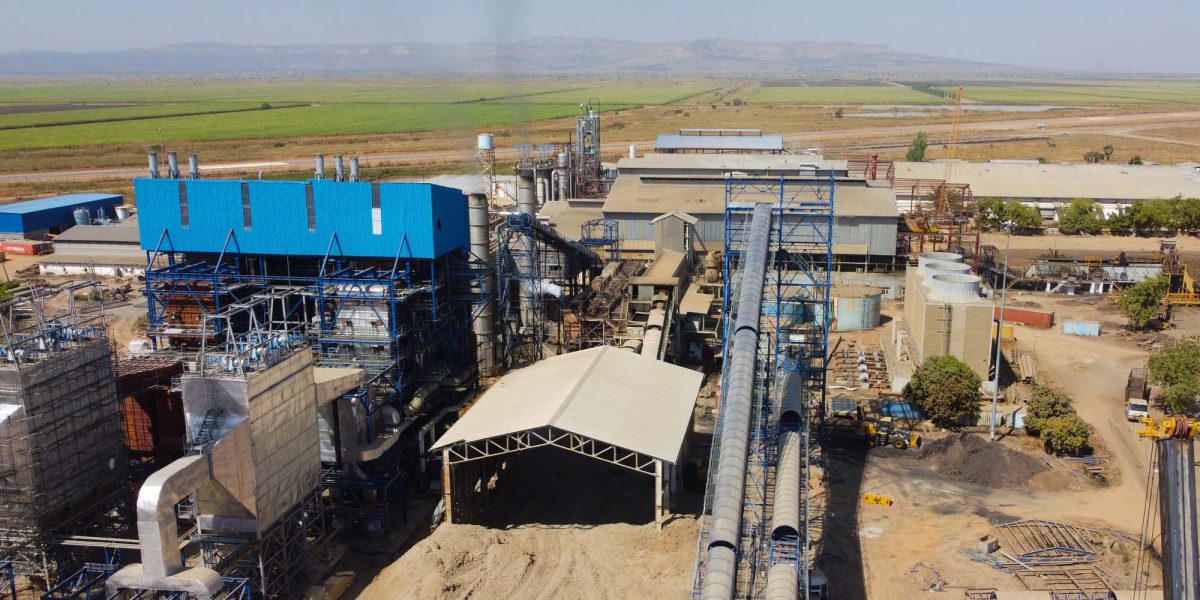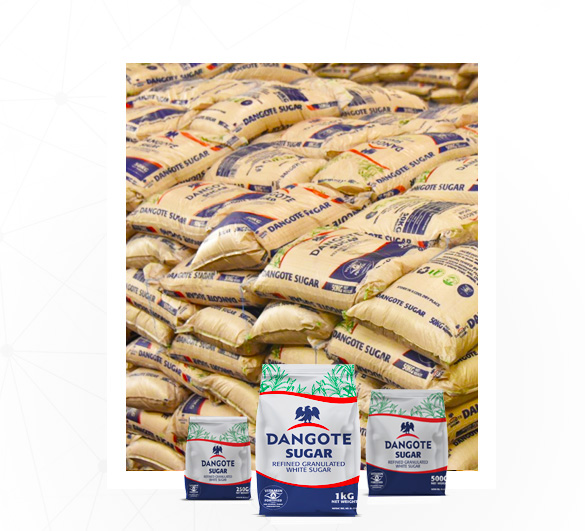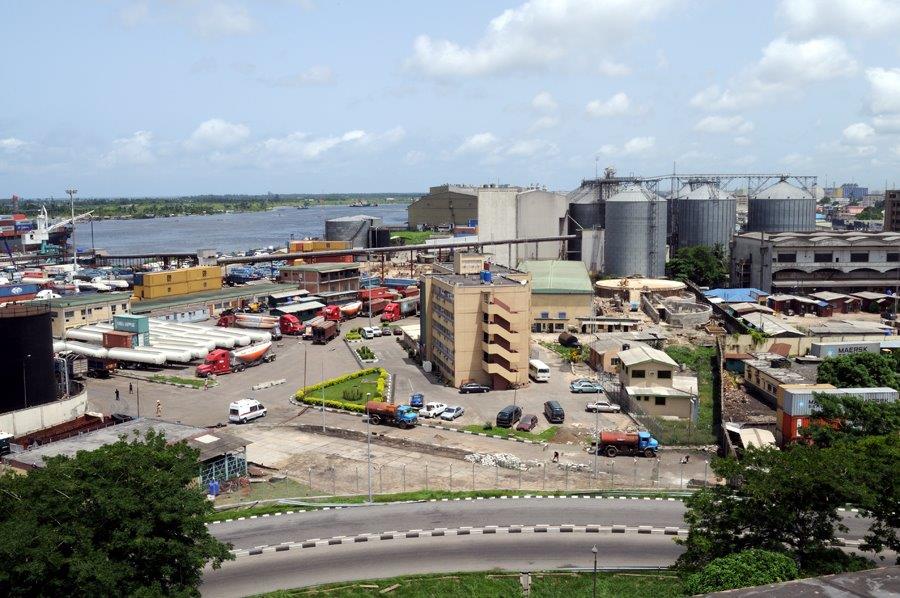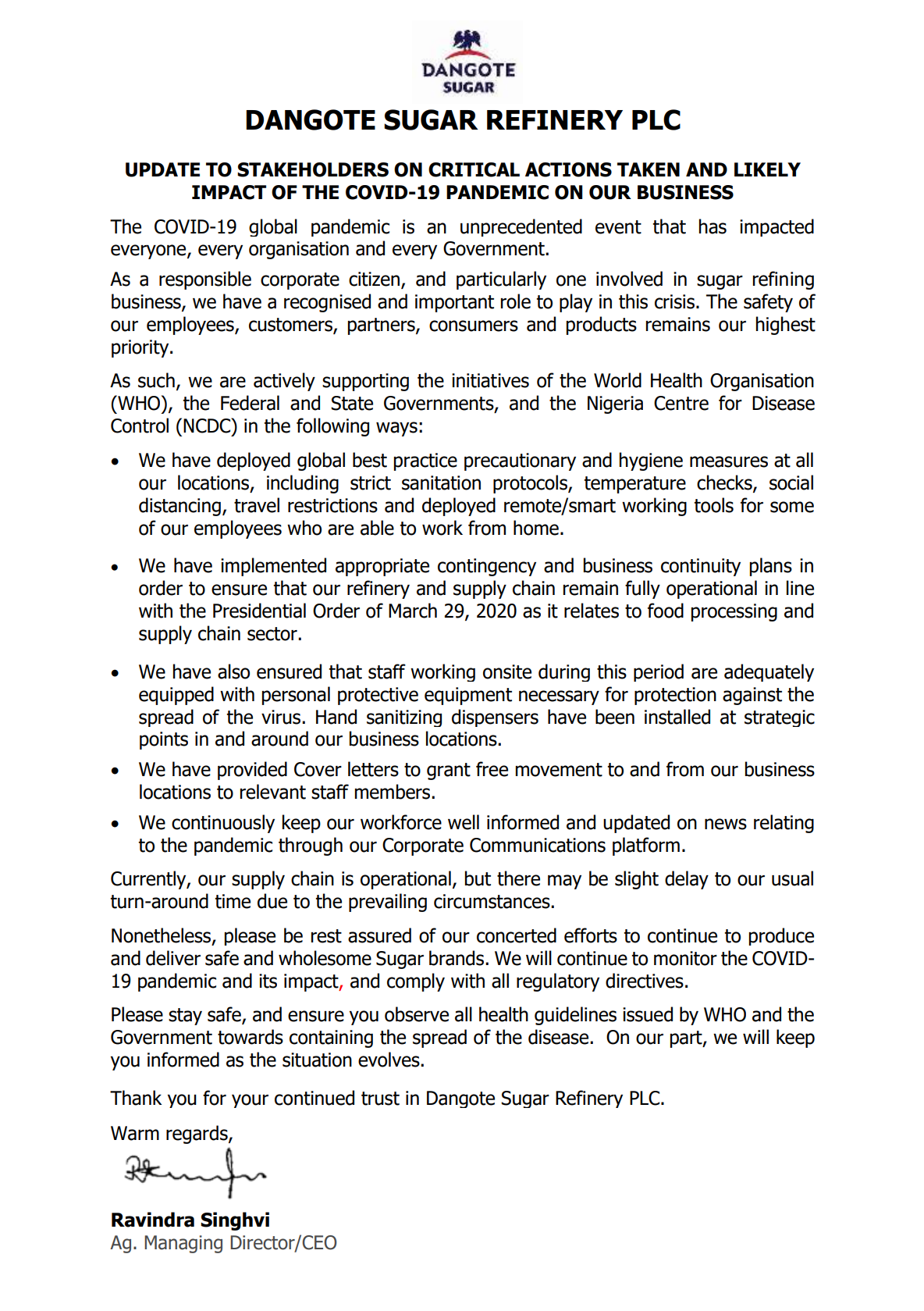The huge investment by Dangote Sugar Refinery in the Sugar Backward Integration Policy (BIP) of the federal government has been hailed by the National Directorate of Employment (NDE), which described its job creation potential as humongous.
Director-General of NDE, Silas Agara who commended the Chairman of the Company, Aliko Dangote during his visit to Dangote Group pavilion at the ongoing Kano International Trade Fair, in Kano said his commitment to the BIP towards achieving Sugar sufficiency in Nigeria is unparallel and worthy of emulation.
Dangote Sugar has so far committed over $700m dollar to the BIP to stem the national annual sugar import of over $337million, so as to ensure Nigeria attains national sugar self-sufficiency which will in turn revolutionalise the economy of the nation as other people-oriented infrastructures would come with the sugar projects being undertaken under the BIP.
Agara who is a former Deputy Governor of Nasarawa State, said Dangote’s commitment is critical for development of sugar industry in Nigeria noting “Dangote Sugar in Tunga in Awe Local Government of Nasarawa State is commendable for improving the Communities in Tunga. It has created job opportunities for the teaming youth and improved livelihoods.
“Nasarawa is proud of Aliko Dangote. Tunga Sugar is a spinner for Nigeria’s economy”, the NDE boss declared while urging the business mogul to step up community advocacy, and more collaboration with stakeholders to drive greater positive change in the Communities.
He noted however, that, “There isn’t any dissenting voice on Tunga sugar, and the communities have enjoyed growth and development through the company Corporate Social Responsibility (CSR) strategies” but call for more of the CSR projects.
It would be recalled that the members of Nasarawa State House of Assembly recently paid a visit to the Dangote Sugar Tunga BIP project which they described as a blessing to the state going by the vast expanse of the project
The Dangote’s Sugar Master Plan, and the company’s commitment to the sugar projects in Tunga, Awe local Government of Nasarawa, and that of Numan, in Adamawa State have scaled up the drive towards realization of National Sugar objectives.
Dangote Sugar refinery recently unveiled plans to produce 700,000 metric tonnes of refined sugar from locally grown sugarcane in the next four years, through its Backward Integrated Programme (BIP).
Chairman of the Company Aliko Dangote had during the Annual General Meeting of the Dangote Sugar, said the management was focused on achieving the revised targets set for DSR Numan operations, Dangote Adamawa Sugar Limited, and Nasarawa Sugar Company Limited.
He then expressed the hope “Dangote Taraba Sugar Limited, Lau/Tau project would also come on stream soon.
Nigeria is one of sub-Saharan Africa’s largest importers of sugar second only to South Africa, but the Dangote Sugar management assured that by the time the company fully completes its sugar projects in Nasarawa and Adamawa under the BIP, the nation would be saved of more than half of the forex expended on sugar imports annually.




